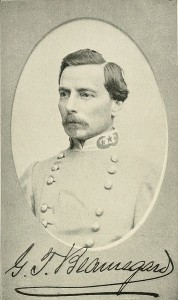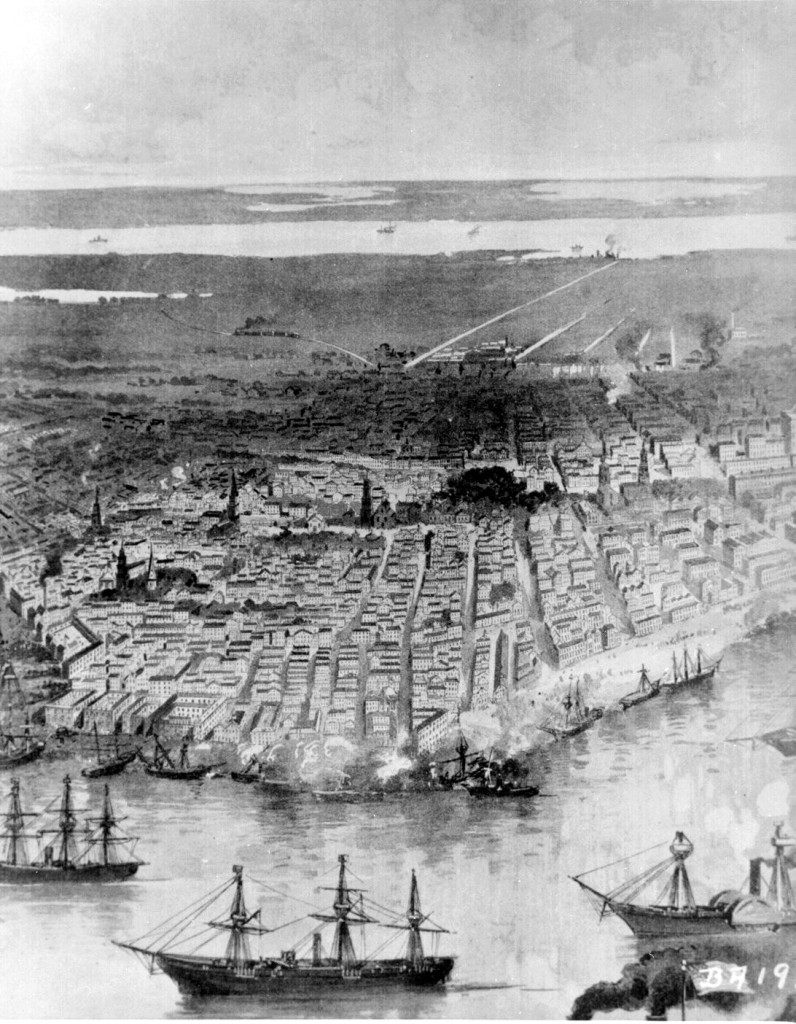For well over a year General P. G. T. Beauregard had been in command of the successful defense of Charleston and Fort Sumter from Union assault. 150 years ago today people in Richmond could read his impassioned letter in response to his wife’s March 2nd death in Union-occupied New Orleans.
From the Richmond Daily Dispatch April 11, 1864:
Letter from Gen. Beauregard.
–The following letter has been received by the committee in reply to the resolutions adopted at the meeting of Louisianian in Mobile on the 19th ult., and forwarded by them to Gen. Beauregard:
Charleston, March 28th, 1864.
Gentlemen:
Accept for yourselves, and for the other officers and soldiers from Louisiana, who met with you at Mobile on the 19th instant, my heartfelt thanks for the lofty and touching sentiments expressed in the resolutions which you were pleased to pass on the occasion of the sad event which has torn from me a most dear and beloved wife, and from the State to which she belonged, one of its brightest jewels and ornaments. Mrs. Beauregard died a martyr to our cause. Her continued and long separation from the chosen one of her heart, under the trying circumstances she had to pass through, was more than her care-worn and enfeebled condition could endure. Yet she departed not from life without giving utterance to her undiminished devotion to that noble cause, and to her unshaken faith in its ultimate triumph. She was a true and fervent patriot. The foul breath of even the most vile among the vilest of our enemies never could taint the pure atmosphere that surrounded her.
How bright, how glorious I would deem the day on which it were given to me, at the head of my brave and so hard tried compatriots, to rescue, with her hallowed grave, the noble State that bestowed such honors upon her remains, from the footsteps of the foe who pollutes them by his presence.
with sincere esteem and
Sincere acknowledgments,
I remain, yours most truly,
G. T. Beauregard.
Major Hy. St. Paul, Capt j. T. Purves, Lieut charles Arroyo, committee, Mobile, Ala.
I haven’t seen any evidence that the occupiers singled out Caroline Deslonde Beauregard as a target for any special oppression; just persevering through the pain of Yankee control of New Orleans was probably sacrifice enough. I think there’s a good chance that “the most vile among the vilest of our enemies” could be an allusion to Benjamin Butler. Butler’s successor, Nathaniel Banks, might still have been vile, but, after Caroline’s funeral attended by 6,000 people, he did provide “a steamer to carry her remains to her native parish.”


